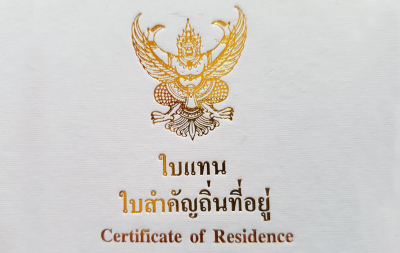The mergers & acquisitions in Thailand offers a strategic platform for both local and foreign investors to gain market access, diversify, and expand their business operations. However, it’s governed by a comprehensive legal framework that foreign investors must navigate carefully, especially within regulated industries. M&A activity is influenced by Thailand’s regulatory framework, foreign ownership laws, tax structures, and industry-specific approvals, creating a unique environment for deal structuring and completion.
1. Regulatory Framework Governing M&A
M&A in Thailand is regulated by several key laws and regulatory bodies:
- Foreign Business Act (FBA): Limits foreign ownership in certain restricted sectors, requiring foreign investors to seek a Foreign Business License (FBL) if they wish to acquire majority ownership.
- Securities and Exchange Act: Regulates publicly listed companies, including share acquisitions, mandatory tender offers, and disclosures for public companies.
- Trade Competition Act: Overseen by the Trade Competition Commission (TCC), this act enforces competition law to prevent monopolistic practices in M&A transactions.
- Corporate Income Tax Law: Governs capital gains and withholding taxes applicable to M&A deals, with favorable incentives for sectors supported by the Thai government, especially those aligned with the Thailand 4.0 initiative.
2. Types of M&A Transactions in Thailand
a) Share Acquisition
A share acquisition involves purchasing shares of the target company, either privately or on the stock exchange if it’s a public company. Share acquisitions are common when foreign buyers seek control without transferring assets, allowing them to assume ownership over existing contracts and obligations. For publicly listed companies, this approach requires compliance with the Securities and Exchange Act and may trigger a tender offer if the acquisition surpasses a certain ownership threshold.
b) Asset Acquisition
Asset acquisition involves purchasing specific assets, such as intellectual property, equipment, or real estate, rather than taking over the entire company. This method allows buyers to avoid inheriting liabilities associated with the company but may require individual transfer approvals, especially for regulated assets like real estate or trademarks.
c) Merger
Mergers are complex transactions where two companies legally combine into a single entity. In Thailand, mergers require shareholder approval and regulatory compliance, particularly if one of the companies is foreign-owned. Mergers are less common than acquisitions due to the regulatory requirements but are used in strategic scenarios where operational integration is essential.
3. Process of M&A in Thailand
The M&A process in Thailand generally includes the following steps:
a) Initial Planning and Structuring
Before initiating an M&A transaction, both parties conduct strategic planning to determine the deal’s structure, valuation, and compliance with Thai regulations. Foreign investors assess FBA restrictions and determine whether they need a Foreign Business License (FBL) or if a joint venture structure is more suitable.
b) Due Diligence
Due diligence is a critical step that includes reviewing the financial health, legal status, and operational efficiency of the target company. For foreign investors, it’s crucial to verify compliance with Thai laws, including licensing, labor regulations, and industry-specific standards. This process may also reveal any hidden liabilities or risks, influencing the deal’s structure or price.
c) Negotiation and Agreement Drafting
Upon completing due diligence, both parties negotiate terms and draft legal agreements, such as a Share Purchase Agreement (SPA) or Asset Purchase Agreement (APA). The agreement specifies terms like purchase price, conditions precedent, warranties, and representations.
d) Regulatory Approvals
M&A transactions may require approvals from relevant Thai authorities:
- Foreign Business License (FBL): Required for foreign entities acquiring majority shares in restricted industries.
- Trade Competition Commission (TCC): Approval may be required if the acquisition creates market dominance or risks anti-competitive practices.
- Board of Investment (BOI): Companies in certain promoted sectors may need BOI approval to benefit from tax incentives and foreign ownership allowances.
e) Closing and Post-Transaction Integration
Once all regulatory approvals are obtained, the transaction can proceed to closing. Post-closing integration includes merging operations, aligning company cultures, and ensuring compliance with Thai employment laws.
4. Tax Considerations in Thai M&A
a) Corporate Income Tax (CIT)
Thailand’s corporate income tax rate is generally 20% but may vary if the acquiring company is BOI-promoted or eligible for tax holidays in targeted sectors.
b) Withholding Tax
Withholding tax applies to capital gains on shares transferred by non-residents. A 15% withholding tax is levied on capital gains for foreigners unless tax treaties provide exemptions or lower rates.
c) Value-Added Tax (VAT)
In asset acquisitions, VAT at a rate of 7% is often applied to transferred assets, unless the transfer qualifies as a business transfer under Thai tax law, in which case VAT may be waived.
5. Post-Merger Integration Challenges
M&A integration is essential for realizing synergies and aligning business operations, though challenges often arise:
- Cultural Integration: Thai corporate culture values respect and hierarchy, which may differ significantly from foreign work practices. Companies often face challenges in integrating management styles and work environments.
- Regulatory Compliance: M&A integration must comply with local labor laws, which require fair treatment for all employees, particularly during restructuring or layoffs.
- Retention of BOI and Other Incentives: BOI-promoted companies must maintain compliance with investment conditions to retain tax and ownership benefits. Failure to do so may result in penalties or withdrawal of BOI privileges.
6. Recent M&A Trends in Thailand
a) Rise in Cross-Border Transactions
Cross-border M&A activity has increased, particularly in technology, renewable energy, and consumer goods, as Thailand pursues its Thailand 4.0 initiative, focusing on innovation and sustainability.
b) Private Equity and Venture Capital Interest
Private equity and venture capital firms have shown strong interest in Thai companies, especially startups in fintech, e-commerce, and health tech, reflecting a favorable environment for venture investments in high-growth sectors.
c) Growth in Real Estate and Hospitality Sectors
M&A in Thailand’s real estate and hospitality sectors remains robust, driven by strong tourism growth and infrastructure development, especially in tourist hubs like Bangkok, Phuket, and Pattaya. Foreign investors are keen on acquiring hotels, resorts, and mixed-use developments.
Conclusion
Mergers and acquisitions in Thailand offer extensive opportunities for investors, but they require a deep understanding of the regulatory environment, industry-specific requirements, and tax implications. By conducting thorough due diligence, navigating compliance procedures, and aligning with local market conditions, investors can leverage Thailand’s dynamic market for successful M&A deals. With an emphasis on strategic sectors and growing cross-border interest, the M&A landscape in Thailand is poised for growth, providing attractive opportunities for both domestic and foreign participants.






